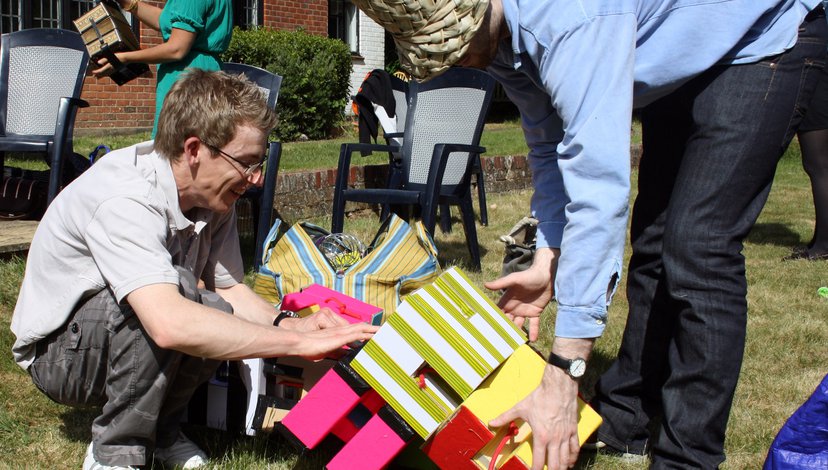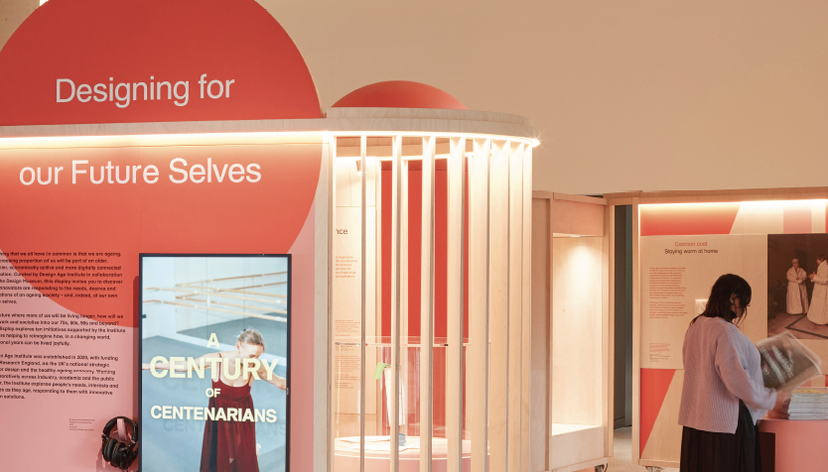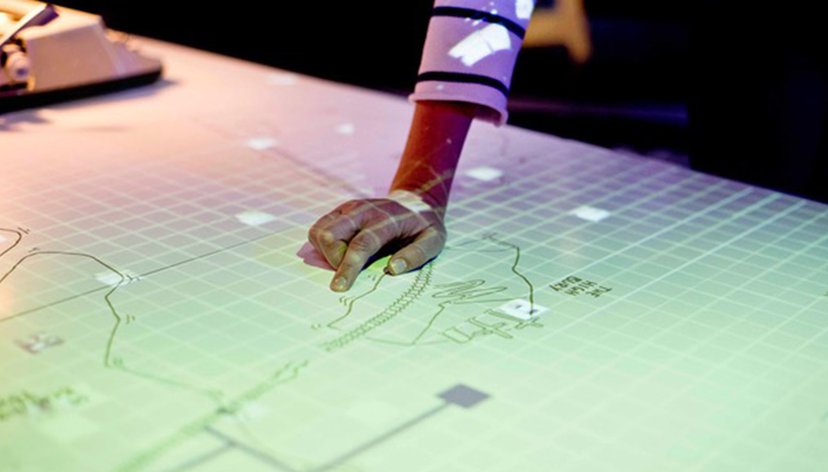About the Centre
Jump to
We focus on projects that use inclusive design to improve people's lives. With a three-decade history, we are the longest-running centre for design research at the RCA.
Founded in 1991, the Helen Hamlyn Centre for Design is the longest running research centre at the Royal College of Art.
The concept of 'inclusive design' was framed by Professor Emeritus Roger Coleman at the RCA in 1994. It advocated for design that ‘includes the widest number of people’ thereby addressing the numerous instances of exclusion by age, ability, gender, race, culture, geography and economics, to name a few.
We use the principle of inclusive design to address challenging social issues, working with organisations to create impactful projects and teach people-centred process. We share knowledge through publications, events and executive education with staff available for advice and workshop/keynote delivery. We have an international reputation, working with government, business, community and the third sector on over 300 projects to date.

Participants with autism exploring sensory preferences, 2011 (Katie Gaudion)
We work on design and research projects with business, government, community and public sector organisations.
Work with us
Research grants
The majority of design research projects undertaken by the Centre are collaborative. We work with a variety of partnering institutions and academics, covering disciplines ranging from orthopaedic surgery to wearables for ADHD monitoring.
We lead, or partner, on the writing of grant applications, strategic planning and ultimate realisation or execution of award-winning research outputs. These may span traditional academic outputs such as papers and conference presentations, but crucially include practical design outputs (e.g. information, apps and product designs) for impact in the real world.
We have been awarded funding from:
- Arts and Humanities Research Council (AHRC)
- Economic and Social Research Council
- Engineering and Physical Sciences Research Council
- National Institute for Health and Care Research
- Wellcome Trust, Innovate UK
- Horizon 2020.
If you would like to partner with us on a grant funded research project, please contact us at hhcd@rca.ac.uk
Knowledge Exchange
We engage in knowledge exchange with business, government, the non-profit sector and the design community.
Engagement takes place through industry collaborations, education and events and publications.
Knowledge Transfer Partnerships and Accelerated Knowledge Transfer Partnerships are collaborations between the Centre and an industry partner and are undertaken to improve business competitiveness and productivity through funded partnerships with our academics and researchers. The project Pioneering Architecture for Later Life Sector, a collaboration with the Centre and architects Cartwright Pickard was a recent example.
We collaborate with universities on projects with design departments within universities focusing on teaching inclusive design through live briefs.
Scoping studies
We partner with public, private and government organisations that are looking to scope a new research area, new audience, or user group or enter a new market. The aim is to inform future research and design practice, innovation, public engagement and outreach programs, as well as policy.
For example, Design and the Mind, 2018 – a collaborative project with Wellcome Collection, which explored ways to address issues surrounding cognitive, physical and digital access to the Wellcome Hub and its resources for a variety of users, by framing this as an integral and positive part of design and research processes.
Design sprints
Design sprints are a rapid solution to develop a range of people-centred design ideas and prototypes, to open up new design directions, visionary thinking and opportunity areas for an organisation. Design sprints are highly customisable, versatile and creative modes of engagement that can be adapted to suit the needs of a range of businesses. They can last anywhere from three days to three weeks, these sprints combine people-centred innovation and creative leadership to deliver powerful potential outcomes.
If you would like to talk to us about running a design sprint in your company, contact us at hhcd@rca.ac.uk
History and Endowment
30 Years of Inclusive Design at the RCA
1986
Landmark New Design for Old exhibition at the Boiler House gallery at the V&A Museum. Curators Lady Helen Hamlyn and Elizabeth Henderson invited 16 International Designers to redesign everyday items for the home to suit the needs of older people. The exhibition showed how design could make a difference to the lives of older people.
1991
DesignAge - an action based research institute at the RCA - was founded to address the needs of marginalised groups by developing practical applications of academic and creative thinking in co-operation with commercial partners.
This laid the foundations of what was to become the Helen Hamlyn Centre for Design: the vision of Lady Helen Hamlyn under the direction of Roger Coleman at the RCA.
1991
Roger Coleman defines Inclusive Design in an academic paper given at an International Ergonomics Association’s 12th Triennial Congress in Toronto
1994/95
DesignAge wins the Queens Award for Higher Education.
The judging panel of this highly prestigious award noted:
This is an imaginative and extremely valuable contribution to the design questions arising from ageing populations. It has practical relevance to industry and commerce as well as involving all faculties and students. It is an international exemplar.
1998
Jeremy Myerson joins as co-founder and co-director alongside Roger Coleman
1997-2007
Development of a programme where new RCA graduates partner with business and industry to explore new ideas in addressing demographic change, a broadening of research methods to more effectively capture user requirements as the basis of creative design processes.
2003
Roger Coleman co-authors an influential report on how the NHS should take a more strategic approach to design leading to the development of a number of landmark projects including the redesign of the emergency ambulance, designing out violence and aggression in A and E and reducing medical error on surgical wards.
2008-2015
Deepening of theoretical grasp of inclusive design, new PhD programme, large scale collaborative projects.
Helen Hamlyn Trust extends their support for the work of the Centre, with the appointment of the first endowed Chair position, held by Jeremy Myerson.
2015-2021
Rama Gheerawo is appointed new director following the retirement of Jeremy Myerson and leads the Centre into new territory with projects aligned more closely to computer and material science, exploring the use of digital apps, autonomous vehicles, SMART textiles and VR.
Scope of Inclusive Design broadened to include issues of Mental Health, race and social equity
2020
The Centre receives large research grant from the Government to establish the Design Age Institute - a new initiative to create innovations for an ageing society.
Endowment
The Helen Hamlyn Centre for Design is endowed by the Helen Hamlyn Trust, a charity dedicated to supporting innovative projects that will effect lasting change and improve quality of life.



